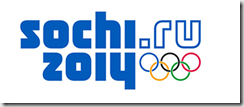The 2012 Olympic Games in London were dubbed the world’s “first social games” or “Socialympics,” as showcased in several previous ComBlu Lumenatti posts. The London games connected athletes, their fans and the media in ways they never had before. Two years later in Sochi, social media is playing an even bigger role in publicizing, promoting, spreading the word, and sometimes criticizing the happenings at the games.
Currently about halfway through the Winter Olympics, I thought it would be fun to look at some of the social activity and emerging social trends from the Sochi games.
· Here Comes Vkontakte! While the social side of the 2012 games in London took place primarily via Twitter and Facebook, the International Olympic Committee turned to a social network called Vkontakte, or VK to engage around the Sochi games. New to many of us, VK is “all the rage in Russia, where many young people favor it over the social networks that dominate elsewhere,” according to Mashable. While Russians are active on Facebook, VK has emerged as the social network of choice among the hosts of the winter games. Mashable reports that the official Olympics page on VK—started by the IOC only 11 months ago—now has nearly 2 million subscribers. When asked what VK users like most, Alex Huot, the IOC’s social media director told Mashable “it’s about the same as any other social network: interactive content, visual posts and behind-the-scenes access are often popular.”
· Proctor & Gamble Leading on YouTube. Given all the chatter I’ve heard about Proctor and Gamble’s “Mom” campaign, it is no surprise to me that this leading brand is leading the pack on YouTube. USA TODAY points to a new study by Kontera and reports that “P&G is leaps and bounds beyond all corporate competitors, with more than 27 million YouTube views through the first seven days of the Winter Games.” Their success is a result of careful planning, having started early with an oh-so-compelling story that resonates with so many of us (as a hockey Mom myself, I can’t get enough of those commercials). Visa and Samsung has fared well on YouTube as well. As reported in the USA TODAY article “The silver medal goes to Visa, with 10 million YouTube views. And a very distant bronze goes to Samsung, with 1.8 million.”
· Leave Bode Alone Already! Bode Miller and Olympic fans in general took to social media in a big way to openly criticize NBC reporter Christin Cooper for her painful interview of Miller after his bronze medal finish in the men’s Super-G. Insisting on bringing Miller to tears by repeatedly asking him about the recent death of his brother really angered fans. The backlash on social media was huge. While Bode forgave her, his fans did not, as is showcased in this Fox News article. More critical tweets of the interview can be found by visiting Bode’s Twitter feed @BodeMiller. NBC’s coverage of the game has been widely criticized—this interview and the resulting firestorm certainly have not helped.
· Oshie-who? An avid hockey fan, I was fairly certain I knew every name on the Team USA men’s ice hockey team. Turns out I didn’t. I had never heard of current St. Louis Blues player and 2014 team member T.J. Oshie. But, thanks to a thrilling shoot out against Team Russia and the social media storm that resulted, he will be terribly hard to forget. According to Twitter metrics and as reported in this article by Newsday, “There were more than 900,000 tweets about the game from 7:30 a.m. to noon ET…Oshie (whose Twitter handle is @OSH74) had more than 136,000 mentions during that same timespan from fans, fellow athletes and celebrities.”
There is still a lot of action left in the 2014 Winter Games, and no doubt many more social media events will emerge as well. What has been your favorite Olympics social media event(s) so far? Please share!


